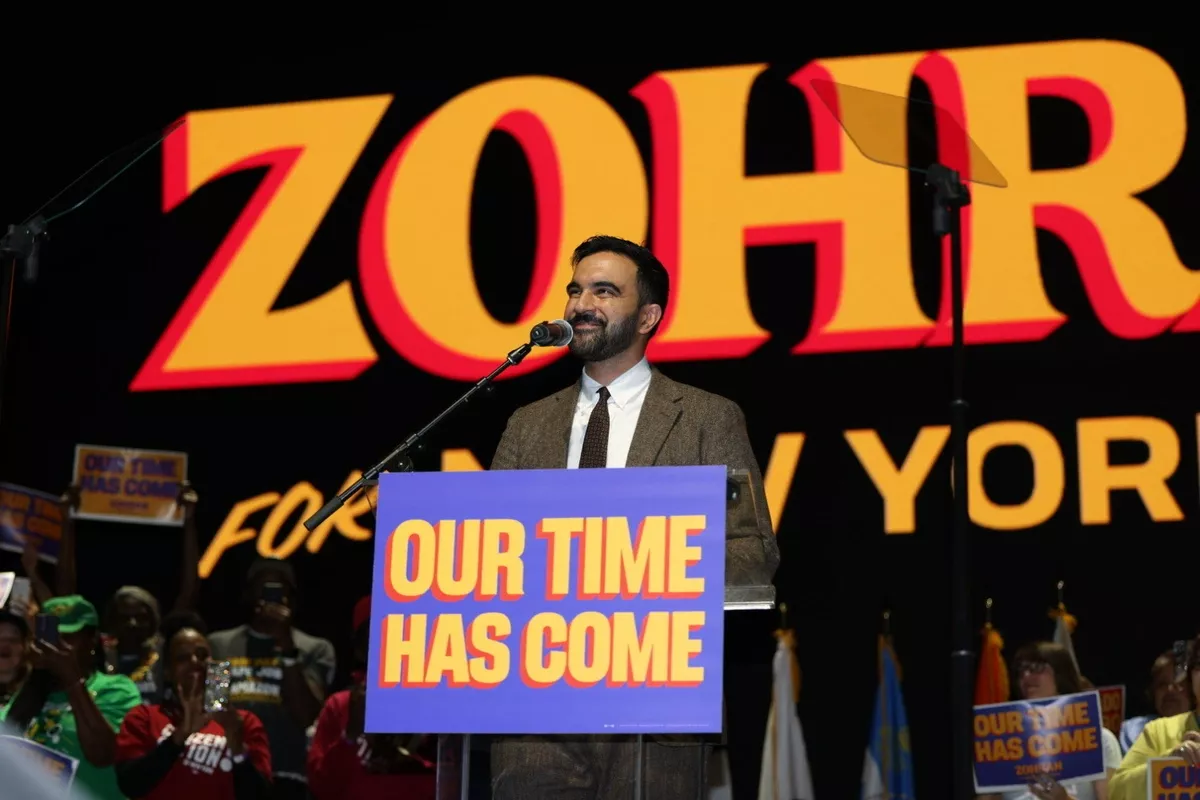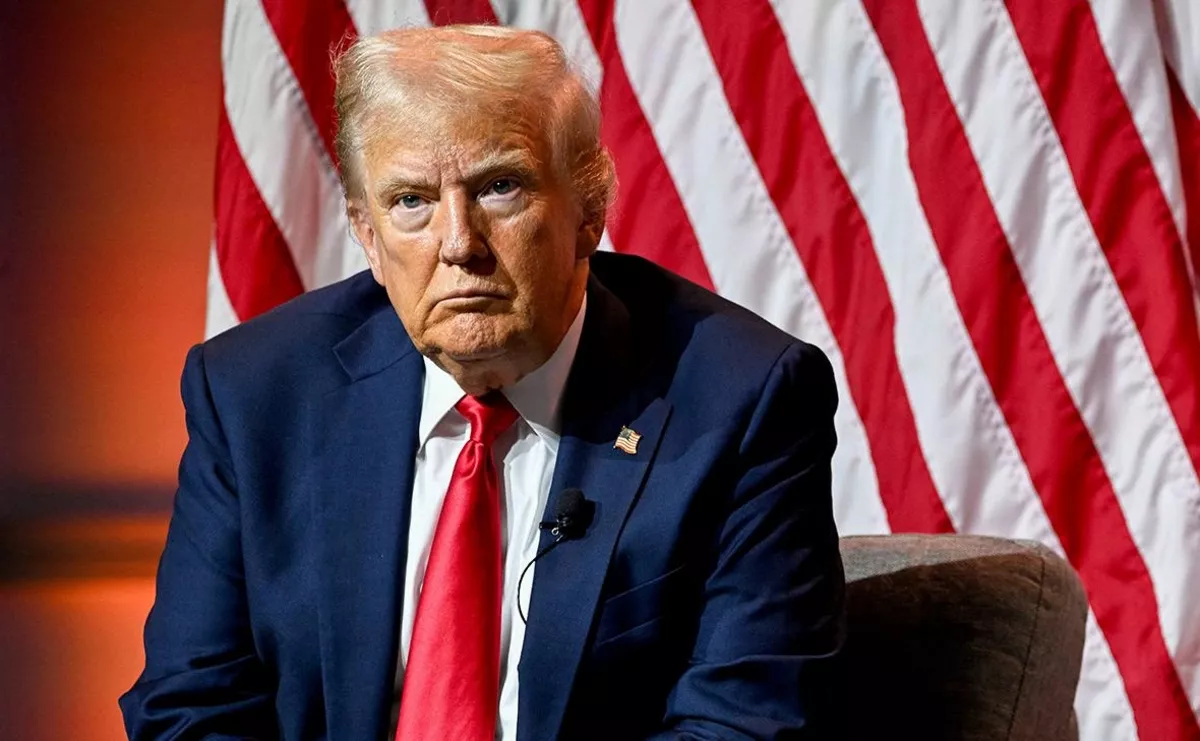Mamdani’s victory and the Zoomers in big politics A generational shift in US politics
Social Democrat and critic of Israel, Shiite Muslim and supporter of a secular state, Zohran Mamdani has won the mayoral election in New York City.
Zohran Mamdani is of Indian descent, though he was born in Uganda. Like some of the most prominent figures of the Indian Subcontinent — from Gandhi to Jinnah, the founders of modern India and Pakistan — he belongs to the Gujarati ethnic group.

A story about such an unusual candidate’s victory in elections held in one of the key financial centres of the United States and the world would be incomplete without mentioning his platform and political convictions.
First, as a representative of the Democratic Party, Mamdani ran on a platform uncharacteristic for it, one inspired by social democracy. He believes it is necessary to raise the minimum wage for New York residents, provide free public transport, expand the system of free kindergartens, and open special shops for the poor where subsidised food will be sold.
These programmes are costly, but perhaps one of the richest cities on the planet — with a budget of $110 billion — can afford them. In addition, Mamdani intends to raise taxes on the wealthy.
Critics of the new mayor argue that such plans could lead to an exodus of wealthy residents from the city. Whether they are right or not remains to be seen. By social-democratic standards, Mamdani’s demands are moderate. It is worth recalling that the Social Democrats of Sweden and several other European countries once nationalised entire sectors of the economy, fought for full employment, and provided their populations with affordable and high-quality healthcare. Mamdani plans nothing of the sort. It is not even certain that he will implement his own moderate proposals. American politicians often fail to deliver on what they promised voters during their election campaigns.
Moreover, one of the main problems facing the richest country in the world — the United States — is the critical state of its healthcare system. Despite possessing ultra-modern technologies, America primarily offers them to its wealthy citizens, while members of the working class and the poor are often unable to access quality medical care. Mamdani has not proposed anything radical in this area.
Secondly, Mamdani is known as an active participant in the pro-Palestinian movement and a critic of Israeli policy in the Gaza Strip. When asked about his attitude toward the slogan “globalise the intifada,” he replied that he is ready to discuss it — provided it refers to non-violent action.

U.S. President Donald Trump was outraged by Mamdani’s victory. Responding to the outcome, he promised Americans that he would not allow the construction of communism in the country “in any form.”
“As long as I'm in the White House, the United States is not going communist in any way, shape or form. We'll stop it. We're going to stop it. Stop this nonsense,” Trump declared.
However, Mamdani’s views have nothing in common with the communist movement. The latter refers either to associations of self-governing workers’ collectives fighting for political and economic power and for a stateless, classless society — as proposed by thinkers such as Herman Gorter and Peter Kropotkin — or to Marxist-Leninists advocating systems in the spirit of the USSR, where the state apparatus owned all means of production as a monopolistic proprietor. Mamdani preaches nothing of the kind.
Moreover, many supporters of communism pursued their goals through revolutionary means, whereas Mamdani is an establishment politician who takes part in elections and insists on adherence to the rule of law. His goal is not the abolition of capitalism, but rather to impose additional taxes on corporations and wealthy entrepreneurs in order to strengthen social support programmes for the underprivileged.
Mamdani does not conceal his adherence to the Muslim faith and often speaks out against Islamophobia. On one occasion, he expressed outrage over an incident in which one of his relatives was attacked in the city’s subway. At the same time, he is a supporter of secular governance, advocating equal rights for followers of all religions — as well as for atheists.
And yet, how did a politician with such distinctly social-democratic views — quite radical by modern American standards — manage to win in one of the strongholds of American capitalism? How can it be explained that roughly a third of the city’s Jewish population voted for him, despite his sharp criticism of Israel? How did a Muslim become the mayor of a city where Islamophobia remains a tangible force?
The search for answers to these questions leads us to an important phenomenon — a new generation has entered politics and public life.
Zoomers and American society

Zoomers are entering politics. This term is used to describe the generation of people born, according to various classifications, roughly between the mid-1990s and the early 2010s.
Zoomers are the first globalised generation — one that came of age online. A young woman in Iran, a Democratic Party activist in New York, and a student or unemployed young man in Indonesia all watch the same TV shows, follow the same fashion trends, and share the same memes. The internet makes it easier to find friends and like-minded people: my young relative living in Germany communicates more with friends from Kazakhstan, Brazil, and Italy than with her own classmates. All this creates what researchers call “hyperconnectivity.”
American researcher Holly Dagres, who studies this phenomenon, notes that those born roughly between 1997 and 2012 can be considered the first truly globalised generation, as they were literally shaped by social media. Hyperconnectivity explains why their memes easily cross national borders, why they wear similar clothes, and why they use the same slang. In addition, they have lived through significant hardships — the global financial crisis of 2008–2010 and the pandemic of the 2020s.
Most of them come from lower-income backgrounds, which makes them particularly sensitive to issues such as unemployment and social inequality. At the same time, they are less prone to xenophobia, as they are accustomed to communicating across barriers.
But let us return to the United States. According to sociological surveys conducted in the spring of 2024, about half of American Jews under the age of 34 view Israeli policy and the actions of the Israeli army in the Gaza Strip critically, whereas among older generations of Jews, an overwhelming majority sympathise with Israel.

More than one million Jews live in New York City. One-third of those who voted for Mamdani were primarily young people. Looking at young Americans more broadly, only about 15 per cent express sympathy for Israel, while the overwhelming majority do not — despite the support Tel Aviv receives from U.S. politicians and the media. It was their votes that Mamdani secured.
There are other, no less remarkable figures. According to surveys conducted by the Cato Institute, more than 60 per cent of young Americans under the age of 34 express sympathy for socialism. By this, they generally mean a more egalitarian distribution of wealth, reduced inequality, and greater concern for the poor. This is highly uncharacteristic of the United States, which is considered the least egalitarian among Western nations.
Zohran Mamdani is 34 years old. He is slightly older than the Zoomer generation, yet closer to them in spirit than to any other. His victory is a signal that a new generation is entering American politics. Zoomers bring with them distinct traits — some people appreciate them, others do not. But in any case, change is underway, and the ruling circles of the United States will be forced to take it into account and draw the appropriate conclusions.








